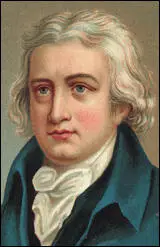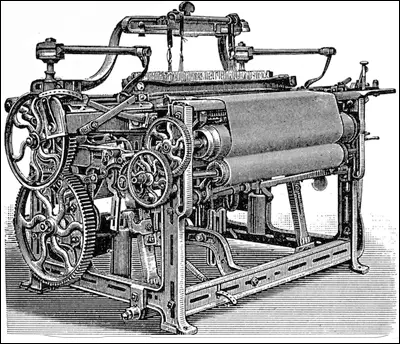Edmund Cartwright

Edmund Cartwright, the son of a large landowner from Marnham, Nottingham, was born on 24th April 1743. His brother, John Cartwright, was later to become one of the leaders of the parliamentary reform movement. After being educated at University College, Oxford, Cartwright became rector of the church at Goadby Marwood in Leicestershire.
In 1784 Cartwright visited a factory owned by Richard Arkwright. Inspired by what he saw, he began working on a machine that would improve the speed and quality of weaving. Employing a blacksmith and a carpenter to help him, Cartwright managed to produce what he called a power loom. He took out a patent for his machine in 1785, but at this stage it performed poorly.
In 1787 Cartwright opened a weaving mill in Doncaster and two years later began using steam engines produced by James Watt and Matthew Boulton, to drive his looms. All operations that had been previously been done by the weaver's hands and feet, could now be performed mechanically. The main task of the weavers employed by Cartwright was repairing broken threads on the machine. Although these power looms were now performing well, Cartwright was a poor businessman and he eventually went bankrupt.

Cartwright now turned his attentions to over projects and took out a patent for a wool-combing machine (1790) and an alcohol engine (1797).
In 1799 a Manchester company purchased 400 of Cartwright's power looms but soon afterwards their factory was burnt to the ground, probably by workers who feared they would lose their jobs. This incident influenced other manufacturers from not buying Cartwright's machines.
By the early part of the 19th century a large number of factory owners were using a modified version of Cartwright's power loom. When Cartwright discovered what was happening he applied to the House of Commons for compensation. Some MPs such as Robert Peel, who had been one of those who had made a great deal of money from the modified power loom, supported his claim and in 1809 Parliament voted him a lump sum of £10,000.
Edmund Cartwright retired to a farm in Kent where he died on 30th October 1823.

